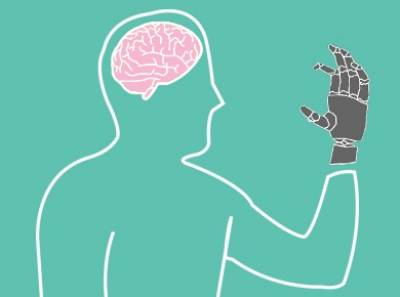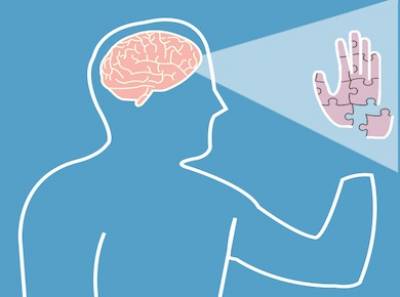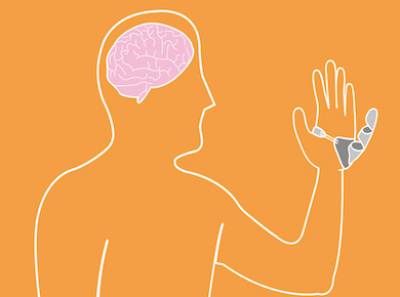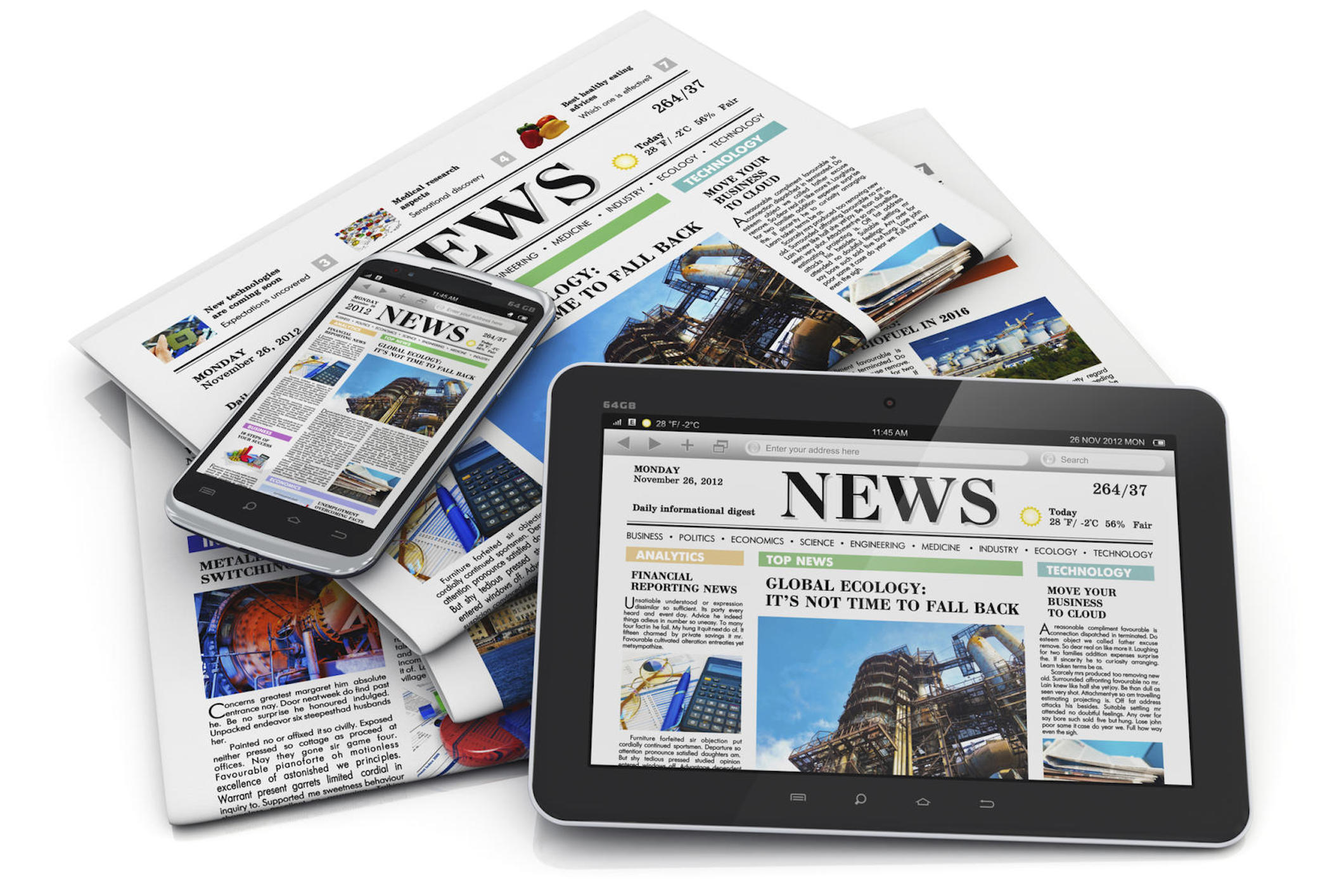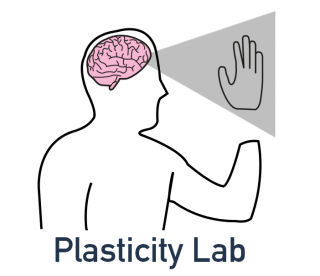Plasticity
Tamar MakinGroup Leader
+44 20 7679 1160 | 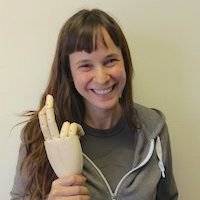 |
Plasticity Research
We are the London plasticity lab, led by Prof Tamar Makin. We study the extent to which brain areas supporting perception and action are shaped by experience. In particular, we focus on the hand, which affords many of our physical interactions with the world. We investigate what happens to the cortical territories of the hand following arm amputation. We want to know why amputees experience vivid sensations of their missing hand many decades after amputation. We are also interested in how the brain best supports the acquisition of new skills necessary for the amputees to adapt to their disability, such as prosthetic limb usage. To understand these processes better, we combine experimental models, performed on healthy participants, and related clinical populations (e.g. individuals with congenital hand loss and the blind). Our research seeks to define the boundaries of plasticity - our brain's ability to adapt how it processes inputs based on changed experience.
Our major research areas are:
Group Members
Post-doctoral Research Fellows
- Elena Amoruso
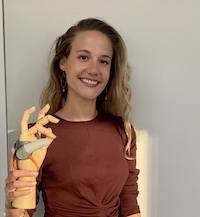
e.amoruso@ucl.ac.uk I am a post-doctoral researcher. In my work, I aim to characterise how sensorimotor deprivation (congenital and acquired hand loss) and augmentation (usage of extra robotic fingers, such as the Third Thumb) shape brain organisation. To this end, I combine multiple methods and techniques, such as fMRI, brain stimulation, psychophysics and pharmacological interventions. By studying sensorimotor plasticity across multiple complementary scenarios, I hope to address from a new viewpoint fundamental questions on the brain’s ability to adapt, while providing practical insights for the development of wearable robotic technologies and rehabilitation strategies.
- Roni Maimon
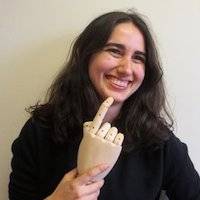
roni.maimonmor@ndcn.ox.ac.uk I'm interested in integrating tools from different disciplines (cognitive psychology, neuroimaging, rehabilitation, computational neuroscience), in order to gain a better understanding of brain plasticity to benefit real people with real life problems. Specifically, I'm focusing on the issue of low prosthesis usage in individuals with congenital and acquired limb loss.
- Dollyane Muret
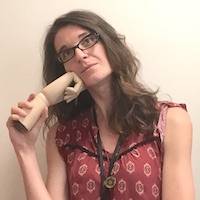
d.muret@ucl.ac.uk I am a postdoctoral researcher, with a biology background. I did my PhD and a first postdoc on tactile perception and brain plasticity. I am interested in understanding how the usage we do of our different body parts (i.e., both in terms of movement and touch) affects brain organisation in adults. Specifically, I investigate how the loss or absence of a hand (i.e., in amputees) modifies the way the other body parts are used in daily activities, and how this modified behaviour impacts brain organisation. To this aim, I combine different methods, from psychophysics to neuroimaging, but also brain stimulation.
- Raffaele Tucciarelli
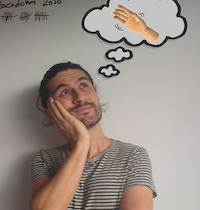
I am a postdoctoral researcher and I've just joined the Plasticity lab (Oct 2020). My background is in Cognitive Neuroscience and Computer Science. I am interested in the computation implemented in the brain to create models of our body and how these models are involved in perception, action and cognition. I am leading a project that aims at investigating somatotopy during development in children born without a hand (BOLDkids). I am also interested in neuroimaging techniques and statistics in general.
PhD Students
- Maria Molina Sanchez
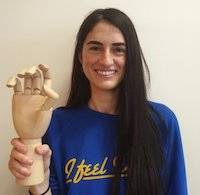
m.molinaez@gmail.com I am a PhD student in Cognitive Neuroscience at UCL, with a neurology background. I am interested in how we consciously experiment our bodies. I am interested in how the body schema is modified by the incorporation of wearable technology. I am using the Third Thumb to study cortical reorganisation after the use of this device. I am also interested in how these technological devices can act as assistive technologies in neurological patients.
- Victoria Root
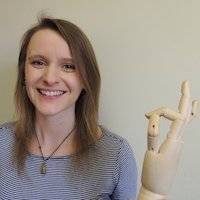
victoria.root.16@ucl.ac.uk I’m a PhD student in Clinical Neuroscience at the University of Oxford. I am interested in the possible mechanisms behind the experience of phantom pain in acquired amputees. Specifically, I will be using an fMRI probability paradigm in combination with a predictive coding framework, to attempt to explain the chronicity of this condition. I am also interested in the reciprocity of the relationship between the primary sensorimotor cortices, and whether this can provide adaptive benefits to individuals.
- Hunter Schone
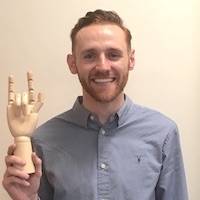
hunter.schone.16@ucl.ac.uk I’m a PhD student with the UCL/NIMH joint doctoral program. I am interested in how the brain changes to meet the cognitive and motor demands of wearable robotic devices. My current research focuses on how the brain facilitates congenital and acquired upper-limb amputees to control an artificial prosthetic hand. Using a combination of fMRI and motor paradigms, I hope to better understand how amputees learn to control prosthetic hands to inform the design of prosthetic devices and prosthesis training protocols.
- Lucy Dowdall
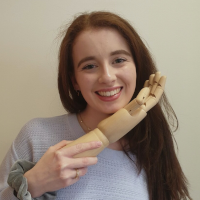
I am a Cognitive Neuroscience PhD student at UCL with the Plasticity Lab. Having previously completed both my undergraduate and masters research projects with the lab, I have developed an interest in sensorimotor learning and body augmentation. I am particularly interested in the role of sensory feedback on motor control when using augmentation devices, and how such devices can be used as models for alternative forms of artificial limb control. My research will focus on the role of somatosensory information when learning to use the Third Thumb, and how this feedback integrates with the biological body. I hope to investigate this at behavioural, synergic and neural levels, and in healthy individuals as well as in patient groups.
Collaborators
- Dani Clode
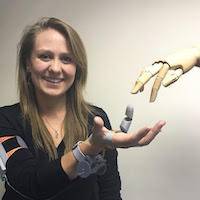
daniclode@gmail.com I am a designer collaborating with the Plasticity Lab at UCL. My background is in prosthetic arm design and human extension exploration, and I’m interested in forming strong connections between design and neuroscience. My Masters degree project - the Third Thumb, is a 3D printed supernumerary robotic thumb, which is currently the main tool for a fMRI study on how the brain adapts to the usage of devices that augment the capabilities of the human hand.
Research Assistants
- Paulina Kieliba
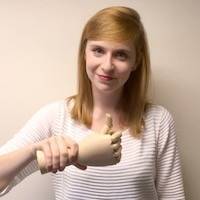
p.kieliba.17@ucl.ac.uk I am interested in combining the strengths of technology and neuroscientific research to best help individuals suffering from motor deficits. In particular, I explore opportunities for improving the usability and design of artificial limbs. In my research, I am looking at the supernumerary robotic fingers as an alternative to traditional prosthetic devices. I study the changes in the sensorimotor systems associated with the usage of an extra fingers both in healthy participants and in amputees.
- Mathew Kollamkulam
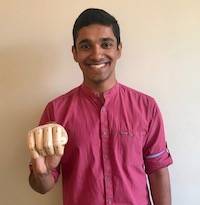
I am a Research Assistant with the lab. My undergraduate dissertation investigated the importance of somatosensory feedback in motor control of a supernumerary robotic device, namely, the Third Thumb. Currently I assist several projects including the BOLDkids project which uses behavioural and fMRI paradigms to investigate neuroplasticity in children with congenital upper limb differences. In particular, we study the effect of compensatory behaviour on adaptive plasticity of the somatosensory cortex.
 Close
Close


